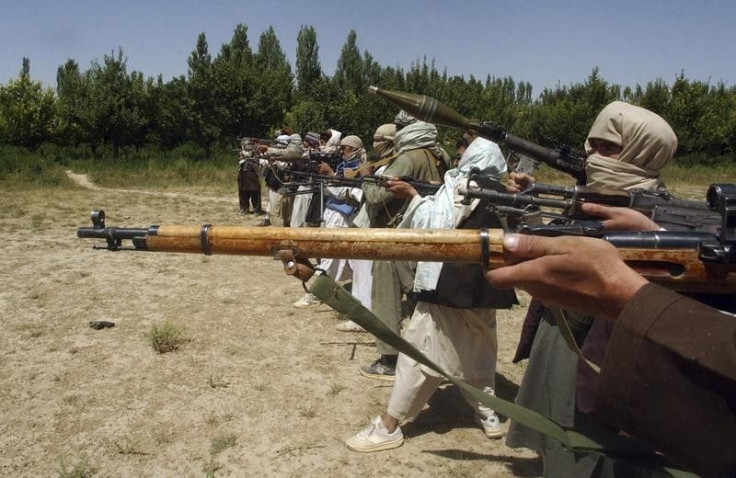US And Others Aim To Draw Taliban Into Afghan Peace Talks

Afghanistan, China, Pakistan and the U.S. will hold talks Monday aimed at laying the groundwork for a negotiated end to almost 15 years of war between American-supported government forces and Taliban insurgents now firmly on the offensive. Taliban forces have stepped up their campaign in the last year to topple the Kabul government, which has struggled since most foreign troops left at the end of 2014. High-profile suicide attacks and Taliban territorial gains in Helmand province have underlined how far Afghanistan remains from peace.
Representatives of the four countries will meet in Kabul to revive a peace process that collapsed last summer. The ultimate goal of the diplomatic maneuvering is to get representatives of the Afghan government and the Taliban into direct negotiations on the country’s future. A previous round of talks took place in Islamabad a week ago. The Taliban, which now controls or contests more territory than at any time since it was ousted by a U.S.-led intervention in 2001, will not attend the talks.
A rocket landing near the Italian embassy in Kabul Sunday brought a reminder of what is at stake. It was not known whether the embassy had been specifically targeted. A police official had no immediate word on any casualties or damage, although local media said two security guards had been injured.
“The talks are strategically important for everyone involved, but are unlikely to go anywhere right now,” said S. Chandrasekharan, director of the South Asia Analysis Group. “The Taliban are making gains, and the army is on the defensive. Until there is a stalemate, the talks are unlikely to succeed.”
The Afghan’s chief negotiator said last week Monday’s talks would focus on creating a peace plan to persuade the Taliban to give up violence. Although the Afghan army and the Taliban are intensifying fighting on the battlefield, a political settlement is seen as the most likely solution to the conflict.
A statement on a Taliban website Saturday did not rule out joining talks, but rejected U.S. involvement, saying the country was to blame for a war that has killed hundreds of thousands of Afghans. “On the other hand, they take the first row among peace negotiators,” the statement said, in an apparent attempt at irony.
© Copyright Thomson Reuters 2024. All rights reserved.





















